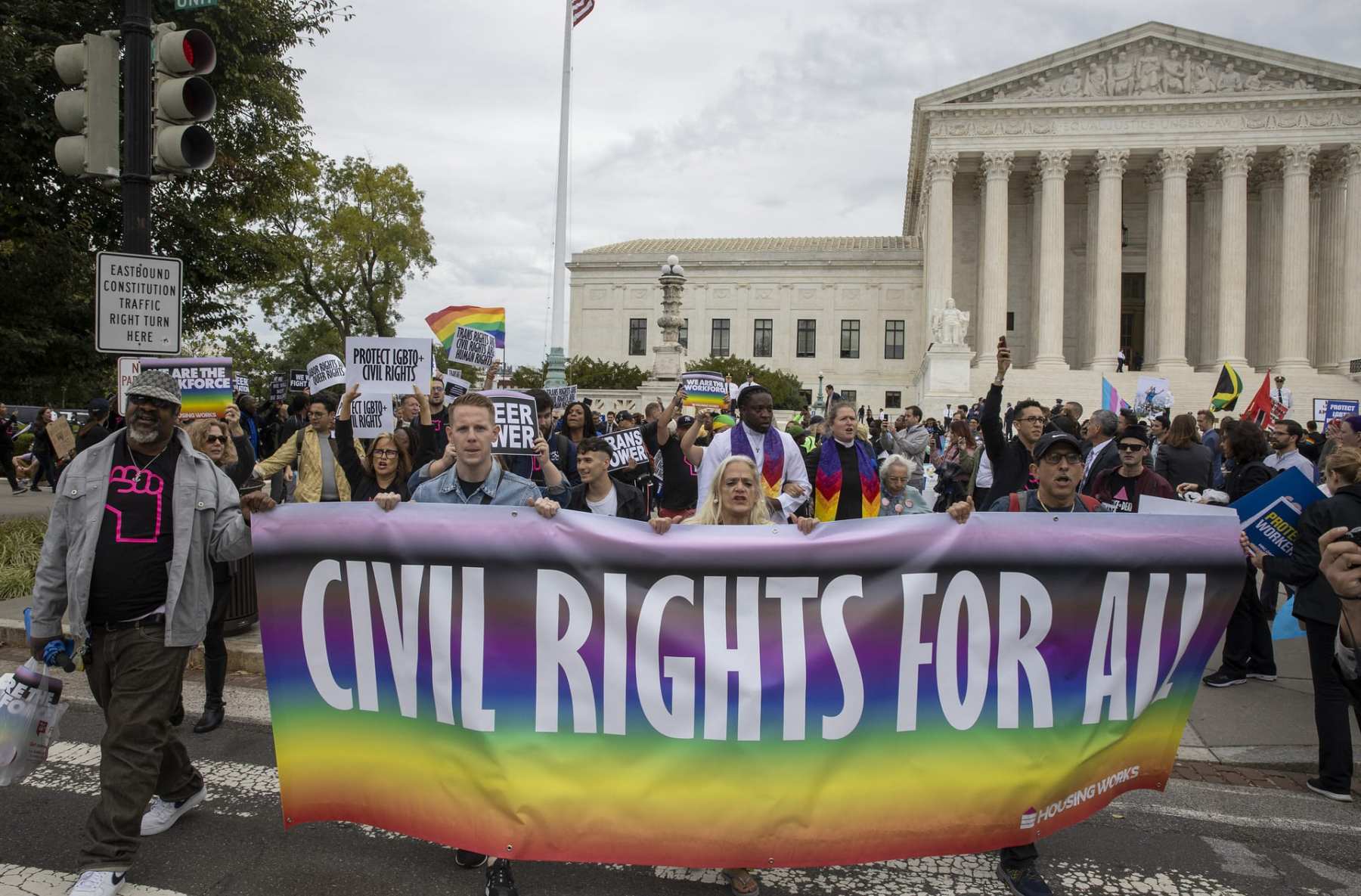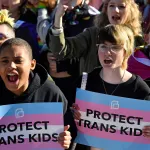Long after new nameplates are mounted outside of offices in the Capitol and the last old staffers depart, President Donald Trump’s legacy will live on.
Nearly a third of the country’s circuit court judges, all lifetime appointments, are Trump selections. Of those, 40 percent have anti-LGBTQ+ histories, according to Lambda Legal, the country’s largest LGBTQ+ legal organization.
The group released a report on Tuesday that breaks down how Trump’s judicial picks have reshaped the courts and what that could mean for LGBTQ+ equality over a generation.
“For the most part, the best that we were able to hope for is some kind of neutrality or indifference on LGBT issues,” said Sharon McGowan, legal director at Lambda Legal. “We looked at not only the cases that they litigated, but in many cases, it was even more important to us whether or not they had done personal speeches or had personal writings out there to indicate that they held hostility to LGBTQ people.”
Lambda Legal believes the report’s numbers represent an undercount. The Trump administration has appointed 54 of the circuit courts’ more than 175 judges, the organization reports. McGowan notes that the organization did not initially oppose the nominations of judges who battled equality on behalf of governments they worked for. That was the case for Judge James Ho, who was appointed to the U.S. Court of Appeals for the Fifth Circuit in 2017. Ho previously served as solicitor general of Texas and chief counsel to Sen. John Cornyn.
In 2019, Ho ruled that Texas was not obligated to allow a transgender woman access transition-related surgery while incarcerated. The ruling used the woman’s former name and misgendered her throughout.
“In Judge Ho’s case, we were even willing to give him the benefit of the doubt, like maybe he was just sort of doing Texas’s bidding,” said McGowan.
Lambda notes that because circuit courts typically hear cases on three-panel judges, LGBTQ+ people are actually very likely to face one of Trump’s anti-LGBTQ+ judges now that they make up a third of all of them. Those judges include Kyle Duncan, who refused to use a transgender litigant’s name and pronouns in his majority opinion last year.
For most cases, those judges are the end of the line, the organization warns. The Supreme Court takes up about 80 cases a year. Last year, the U.S. Court of Appeals had 39,014 cases pending.
McGowan said her organization isn’t shying away from litigating in front of Trump judges and thinks they will have a case in front of any jurist who keeps their oath to the Constitution.
“Unfortunately, there are just so many people who were pushed through this process, not despite, but in many cases, it seems like because of their anti LGBTQ credentials,” she said. “It’s really going to be one of the lasting legacies of this administration, even as we prepare to turn the page.”





